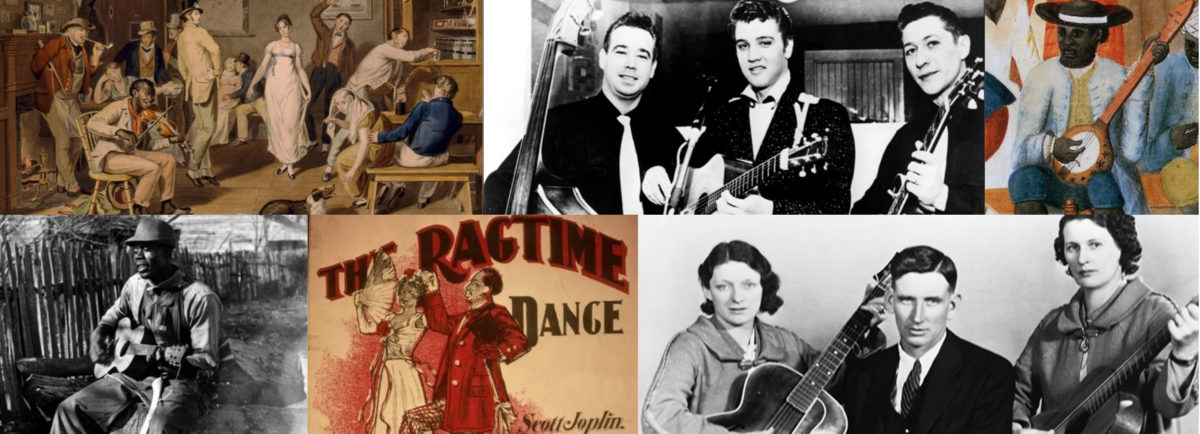Ballad of America preserves and celebrates music from America's diverse cultural history.
Music Library
Articles and videos with fascinating stories of songs, genres, instruments, people, and more
For Educators
Resources to help teachers, both traditional and homeschool, integrate music and United States history
Sing It
Sing-along videos, recordings, lead sheets, and more to facilitate the singing of American folk songs by people of all ages
Live Events
Multimedia programs that entertain, inspire, and inform people of all ages, delivered in-person and online
Official Partner
America's Music
The music in America today is part of a continuum that reaches back to the Indigenous peoples and stretches across the Atlantic Ocean to the Old World. Music, instruments, and songs tell the story of the ordinary and extraordinary people who have populated the United States and propelled it into the 21st century. The genres of music explored through Ballad of America include traditional folk songs, fiddle tunes, ballads (both Old and New World), sea shanties, railroad and cowboy songs, Appalachian, ragtime, spirituals, work songs, minstrel, blues, jazz, jug band, rhythm and blues, old-time, country and western, Cajun, bluegrass, and rock & roll.
Featured Video
This is a 1-hour video of a Zoom presentation from Folk Alliance International's Folk+ online music conference recorded on June 18, 2025. How did the banjo, which has roots in West Africa, become a symbol of rural white America? Along the way, the instrument took center stage in America's most popular form of entertainment in the mid-19th century and found a home in the Victorian parlor. Through historic images, recordings, and live performance, Matthew Sabatella, founder and president of Ballad of America, Inc., tells the story of the banjo from its African roots through its development in the Caribbean, early history with enslaved people in North America, growth in popularity through blackface minstrel performances, integration into dance and song traditions in Appalachia, role in 20th and 21st century ragtime, jazz, folk, old-time, bluegrass, country, popular, and world music, as well as the current Black Banjo Renaissance.



